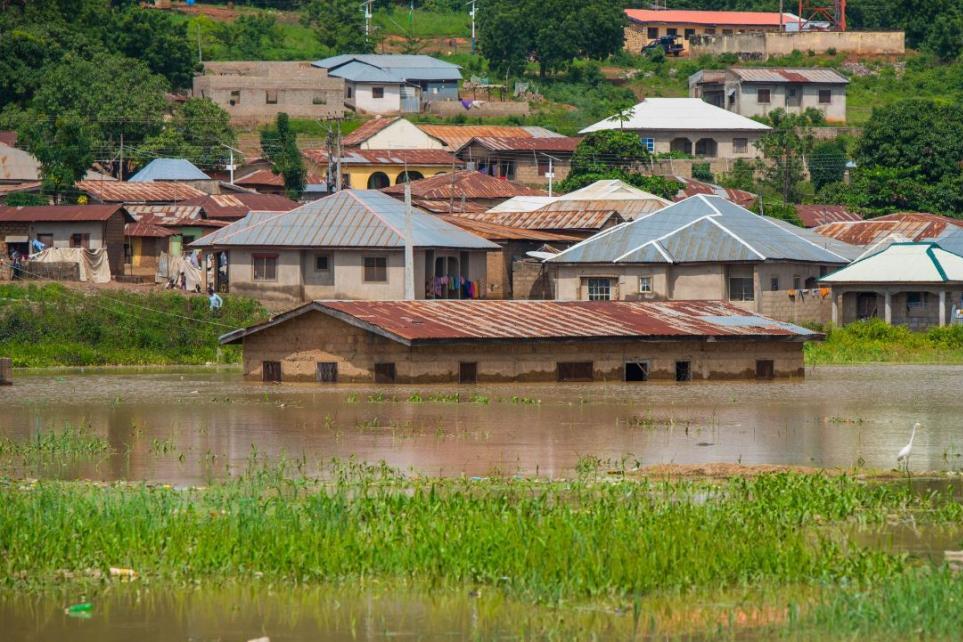Scientists have predicted an increase in cases of water and mosquito-borne diseases. The forecast followed flooding in several communities across the country and the consequent contamination of water sources.
With the likelihood of more rains, amid a cholera outbreak that has already claimed 517 lives, they expressed concern that things could get worse.
The Nigeria Hydrological Services Agency (NIHSA) and the National Emergency Management Agency (NEMA) had issued warnings of flooding, which may affect 13 states, especially around the Rivers Niger and Benue.
Already, President Muhammadu Buhari has directed all Federal Government agencies “to use their authority and resources to assist victims affected by the natural disaster.”
A statement by his spokesman, Garba Shehu, last night, said the new directive was conveyed through the director general of the National Emergency Management Agency (NEMA), Mustapha Maihaja.
Buhari assured Nigerians that his administration will do all it can to minimise the sufferings of the affected people.
“We are sending out alerts to the effect that the flooding being experienced in some parts of the country may lead to rise in water and mosquito-borne diseases. Flooding can disperse faecal contaminants, increasing risks of outbreaks of waterborne diseases such as diarrhoea and cholera. There will also be more stagnant water that will breed mosquitoes, resulting in rise in mosquito-borne diseases such as malaria and yellow fever,” the chief executive officer of the Nigeria Centre for Disease Control (NCDC), Dr. Chikwe Ihekweazu, told The Guardian yesterday.
According to the World Health Organisation’s (WHO) flooding and communicable diseases fact sheet, floods can also potentially increase the transmission of typhoid fever, leptospirosis, hepatitis A, dengue and dengue haemorrhagic fever and West Nile fever.
Ihekweazu said the NCDC had outlined 10 ways to prevent diseases during flooding. These are: do not drink floodwater or use it to wash dishes, brush the teeth or wash/prepare food; ensure chlorination of public source of water supply; ensure proper disposal of waste and sewage; wash hands frequently with soap and clean water; and discard all medicines, food and bottled water contaminated by flood water.
Others are: ensure water is properly boiled before drinking; avoid open defecation and indiscriminate refuse dumping; avoid mosquito bites by ensuring consistent use of insecticide treated nets; health workers should observe universal care precautions; and visit a health care facility immediately, if you experience sudden fever or diarrhoea.
Meanwhile, emeritus professor of forest ecology at the University of Ibadan and chairman of the board of directors, Nigerian Environmental Study Action Team (NEST), David Okali, regretted that the flooding is being compounded by the lack of drainage channels, especially in urban areas.
“Most of the rivers are filled with sand. We also have so much segmentation and abuse of watersheds by deforestation of vegetation cover. Invariably, urbanisation is increasing and people are removing vegetation,” he said.
The executive director, Environmental Rights Action/Friends of the Earth, ERA/FoN, Dr. Godwin Ojo, blamed poor sanitation, improper drainage management and the lack of orientation among residents.
“People empty their waste in gutters. The drainages are clogged with chemical, industrial and domestic waste. Our environment is our life. It is where we live. And when we foul the nest, the repercussion is excessive flooding, inundation of houses, farmlands, destruction of livelihoods and rise in food prices,” he said.
On his part, the immediate past regional director of UN-Habitat for Africa, Prof. Banji Oyelaran-Oyeyinka, noted: “Flooding is usually, at least, in part, a result of infrastructure deficit. Where there are no culverts, water must find its level. We must realise that climate change is upon us.”
Chike Chikwendu, the executive director, Centre for Energy and Environmental Sustainability, however stressed that the yearly flooding in some riparian states are predictable. According to him, “These are states lying along the major rivers of Niger and Benue and include Delta, Anambra, Niger, Edo, Benue and Kogi. The seasonal rains and the anthropogenic release of water from dams built across the River Niger at Kainji and Lagdo, along the River Benue, accentuate flooding in these states.”
He predicted that the flooding is expected to continue due to intensity of rain, blockage of drainage systems and poor urban and community planning.
For a solution, Dr. Ewah Eleri, the executive director of International Centre for Energy (ICEED), urged the federal government to embrace a timely dissemination of information and ensure that people in flood-prone states are prepared.
“NIMET provides yearly information. There are no good indications that these have been effective. Beyond information, a stakeholder platform on flood management, especially coordinating states and federal agencies, could be useful in developing and implementing yearly drainage system management,” he said.
CREDIT: GUARDIAN




